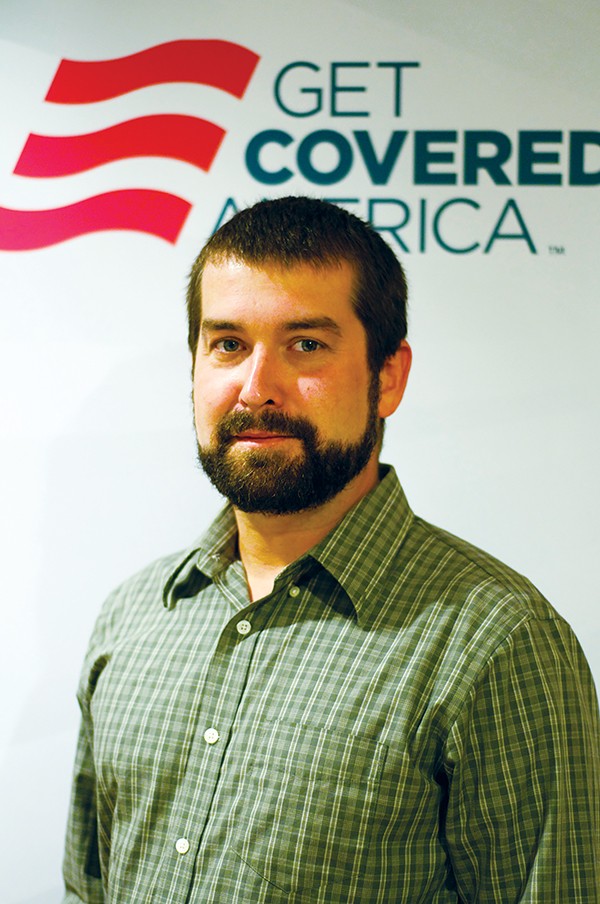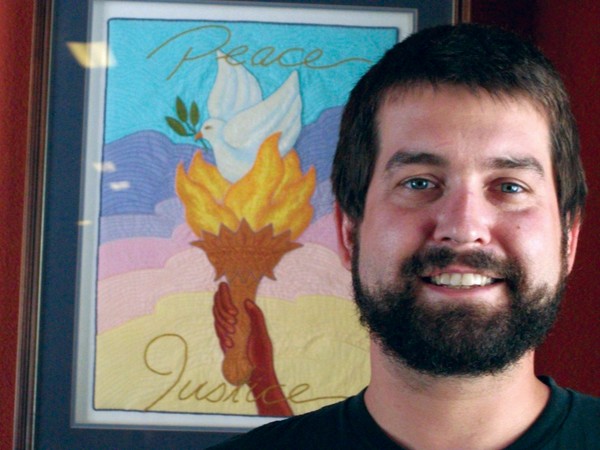The uninsured rate for health coverage in Shelby County is 14 percent, which is only down four percent since the Affordable Care Act (ACA) launched in 2013.
Additionally, Shelby County accounts for the highest percentage — 14.5 percent — of uninsured residents in the state. And most of the county residents without health coverage are either Hispanic (20 percent), African American (18 percent), or young people ages 18 to 34 (21 percent). That’s according to new data from Enroll America, a national, nonpartisan nonprofit group that aims to get uninsured people signed up for ACA health plans.
Open enrollment for ACA coverage is underway now through January 31st, but Enroll America’s Tennessee State Director Jacob Flowers says those who want to start 2016 with coverage must sign up for a plan by December 15th. For assistance finding a plan, people can contact the Enroll America hotline at 844-644-5443 or go to GetCoveredTenn.org. — Bianca Phillips

Jacob Flowers
Flyer: Shelby County’s uninsured rate hasn’t dropped much. Were you surprised by that?
Flowers: The rate in Shelby County is on par with what we’ve seen across the state with the lack of Medicaid expansion. And with such a high uninsured rate to begin with, it’s actually pretty good. There is a lot still to be done, but we’ve been really proud of what people have been able to do here in Shelby County.
Why the disparity among young people, Latinos, and African Americans?
Those populations are the hardest to reach, each with their own separate set of circumstances. We’ve gone through two open-enrollment cycles now, and the outreach community has been very effective at getting the general word out to the broader community, which has resulted in what you would call the lowest-hanging fruit being enrolled first.
What role has Tennessee’s failure to expand Medicaid had on our uninsured rate?
When we hold enrollment events, we have a large number of people who walk in and are not eligible for coverage. And that’s tough to explain. These folks are the working poor, and they don’t understand why their friends and family members are eligible for coverage and they are not. It’s a tough issue to deal with here in the state.
Who isn’t eligible for ACA coverage?
There are people who fall completely below the federal poverty level, and they’re eligible for Medicaid, which is TennCare in our state. At the other end of the scale, you have people who just make enough money for a plan out-of-pocket. And more than 83 percent of Tennesseans receive a federal income tax credit, which makes coverage affordable for them.
But in the middle are people who don’t make enough money to qualify for federal tax credits, but make too much money to qualify for Medicaid. So they’re left in what we call the coverage gap. And the lack of Medicaid expansion means they’re not eligible for Medicaid or tax credits. So they just can’t afford coverage.
How many people here are in that gap?
The quotes are between 400,000 and 480,000 across the state; Shelby County has the largest percentage of people in the Medicaid gap. They estimate that’s between 60,000 and 75,000 people in Shelby County.
Is there any element of political protest in the lack of insurance? Are some people refusing to sign up because they’re anti-Obamacare?
It’s a politically divisive issue. But we find it interesting that once you take the political divisiveness out of it and focus on the benefits that it has for individuals and the broader community, those political walls seem to come down.
I’ve heard quotes from our staff out in East Tennessee where somebody will come into an event and they’ll say, “I sure am against that Obamacare, but that coverage I got through the Affordable Care Act sure is great.” There’s so much rhetoric out there.

